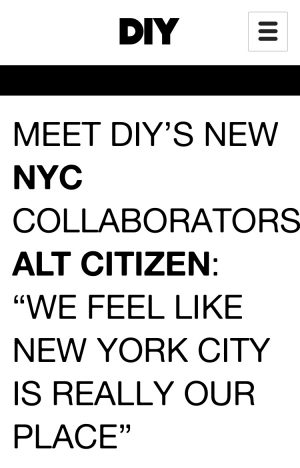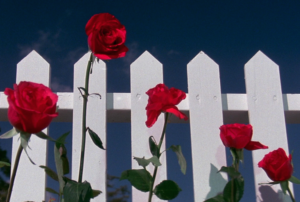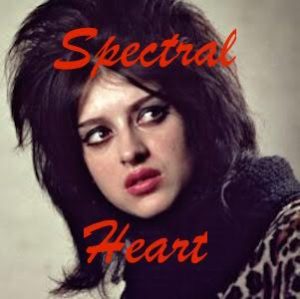Exitmusic’s latest release, The Recognitions, may very well be its last. The 12-year relationship and musical collaboration between Devon Church and Aleksa Palladino began on a train in Canada, and subsequently ended in divorce in 2015.
With their last release 7 years ago, the duo has proven that their emotional dream pop is curated and refined over time. Ephemeral instrumentals in this album combined with ghostly, cathartic vocals from Palladino feel like a evocative wave washing over you, losing your breath, and finally coming up for air when you almost feel like it’s too late. I spoke to Devon and Aleksa on the making and release of the album, their relationship, and the implications of creativity. Welcome to your new emo breakup album.
How does it feel now that The Recognitions has been released and that the future of Exitmusic is uncertain?
Devon: It’s a relief to have it out in the world! Honestly, it’s been so long since the songs were recorded, and then it was such a task to mix them (Exitmusic songs are complicated creatures) that I feel fairly distant from the project, emotionally. But listening to the full album again on release day was a special feeling. I don’t really know how to qualify it.
Aleksa: It feels… right. The uncertainty feels right too.
Do you feel like you’ve grown with your music over the years and with the relationship you were in?
Devon: For me, music has been a process of self discovery. I have no real musical or production training and never really played in a ‘band’ other than Exitmusic and the solo project I’m working on now. So I never learned to jam or play off other musicians, since in Exitmusic the songs were all composed one part at a time in our home studio. I guess the result is that I have these very idiosyncratic tendencies, musically. What comes out of me is often unexpected, and it’s a bit like exploring a cave or something, or entering a labyrinth of your own making, or like getting lost in a dream. How that all relates to life or relationships is unclear, but I’m sure there is a connection. But I generally like letting songs be, without thinking too much about what they mean (though I have my own interpretations of them, and they’re interesting to think about), as if they were weird organisms or something.
Aleksa: I think through both I became more confident in my autonomy. EXITMUSIC really allowed me to flourish and put myself into the world the way I wanted to be seen in it. Especially in comparison to the majority of film/tv roles written for women, which can seem flat, simplistic, often marginalized. EXITMUSIC was a place for me to bring everything I was, or everything I had access to at that point.
As for the relationship, I mean, I grew up in it. We both did. So much so, that in turn, we grew apart in some ways. I think we both needed to step away to become full. I don’t think we were the first people to love each other but keep each other small. Our own identities were defined by the spaces left by the other. We were growing to serve the relationship and not ourselves. And I think we were both too big to stay stunted for long. But it was beautiful while it lasted. Enough time has passed now that I’m left feeling really grateful for all we experienced and all we created together.
How did you collaborate in Exitmusic? How did you two work creatively, especially with this album?
Devon: In a totally codependent way. It was sometimes magical, often toxic. Intense forces and pressures produced those songs, like emotional geology.
Aleksa: It felt like mind melding. Really getting as much on the same page so that we were serving the project and there could be a singular vision. Thematically, texturally, tonally. One mind. The music of EXITMUSIC was very shared. Within that there were individual strengths. Devon was growing his understanding of engineering and mixing and the technical aspects. He spent lots of time researching gear and was always the one who knew what we should buy to bring our production quality to the next level. My strengths grew in the emotional content of the project. My voice, melody and arrangement, words and overall subject matter of the songs. We met in the middle creatively.
Has the release of The Recognitions helped you move on from your relationship?
Devon: I suppose so. Hard to know what to attribute it to, but moving on from a 12 year relationship takes time. Four years of therapy helped too. And I think the process of making my own full length record was a major step toward individuation from a creative and romantic relationship that was all-encompassing, and often felt unhealthy, for many years.
You’ve talked about your struggle with depression before. Do you find that it helps or hinders your creative output?
Devon: Anyone who says depression helps their creativity has it totally backwards. Creativity has always been my way out of depression. And it can be an uphill slog. I often wonder how much more and how much better I could have produced if it weren’t for this spiritual/physical/emotional malaise that sometimes comes over me. That said, it seems sometimes that depression is like this massive slab of uncarved marble just sort of sitting on your chest when you wake up and if you want to get up you have to start hacking away at it. And once you do that, some form starts to reveal itself and you become fascinated with it and keep carving. Or maybe you’re disgusted by it but at least it’s a manageable size now and you can move it out of your way.
You grew up in an artistic family, and you are musician and actor. Do you think creativity is something innate, that you’re born with, or something that can be cultivated and drawn out?
Aleksa: I think that even when its something you’re born into you still have to cultivate it and draw it out. I don’t think there are any short cuts, I never found any. You still have to find your voice, which can sometimes be even harder when surrounded by adults that have already found theirs. You have to earn your space at the table, so to speak. I felt I had to earn it in my families eyes way before I felt the pressure or critique from the outside world. I think the leg up I had was that I was around people who believed there was true value in the pursuit of creating things. But its not a trade that be passed down, you know? It has to come from within and you got to do the work. I don’t think its something that can be taught. But you don’t need to be born into an artistic family to feel it innately. I think the thing that is “contagious” or “inherited” is passion. Passion for life and paying attention to it and your experience of it. What you do with that, is on you. And how hard you work on that, is on you too.
Do you think you would have made music or started acting if your upbringing wasn’t in such a creative environment? Since being an artist is not usually seen as a viable career path, did having an artistic family make it seem like it was a career choice as regular as anything else?
Aleksa: I don’t know. But I will say that it always felt like a gamble. A worthy gamble though. One I was willing to fail for. Its not a viable career path. I was aware of that even as a kid. But I think I felt that everything great was a gamble. I still think that actually. I really believe in doing the work, and continuously refining and going deeper, stretching and exploring, and failing. Keeping your standards high. And calling bullshit on yourself. If art matters to you then no amount of failure or disappointment will stop you. You just keep going, growing, getting smarter, stronger. You learn your hand and you play it… then those moments when luck comes around, and you’re ready. I don’t know how this got so poker related…I don’t even know how to play.
How do performing live and acting differ? Do you feel like you’re acting when you perform in Exitmusic?
Aleksa: I don’t ever feel like I’m acting when I’m performing, in fact I don’t feel like I’m acting when I’m acting either. I’ve never liked the idea that acting is pretending. It cheapens it to think of it that way. To fill a character you have to bring forth your whole self. sure, different traits or colors are emphasized depending on the role, but they’re a
ll yours. You can’t play what you haven’t felt. It would be in your blind spot. You wouldn’t even think of it. What’s so powerful about acting, for me, is getting the mind and body into a place where its so open it believes the moment its in…then the emotions come just as they do in life. With music it’s the same thing. You’re creating a whole world with music and words and the sounds your Body is making. There’s no pretending in any art…that’s the first part of the job, finding the truth.
If there was a biopic of my life, I think I would play “Closer” from the new album at the ending credits. Is there a song from The Recognitions you would play at the end of the hypothetical biopic about Exitmusic, something to tie it all together?
Aleksa: “I’ll Never Know.”
Devon: I liked “The Distance” as a final track for this album and I think it would work for that purpose too.
Buy The Recognitions here. Find Exitmusic on Facebook, Instagram and Twitter.










